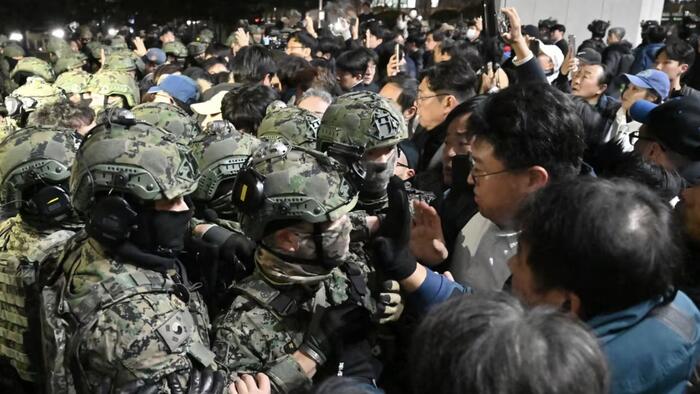The political landscape in South Korea is currently in turmoil following President Yoon Suk Yeol’s controversial attempt to declare martial law. The aftermath of this dramatic move has seen significant arrests and a looming second impeachment vote. This chain of events began on December 3, when President Yoon surprised many by declaring martial law, a decision that he claimed was necessary to safeguard the nation amidst a political impasse over the 2025 budget and mounting tensions related to the impeachment of top prosecutors. His declaration was met with swift opposition, including a mobilization of legislators who gathered to vote against it, emphasizing the intense scrutiny and challenges to his authority.
The chaos took an even more disturbing turn with the arrests of key law enforcement officials linked to the martial law declaration. Notably, former Defense Minister Kim Yong-hyun was arrested on insurrection charges and subsequently attempted suicide while in detention. His arrest is part of a broader crackdown, as both the National Police Commissioner Cho Ji-ho and Seoul metropolitan police chief Kim Bong-sik also faced arrest for their roles in obstructing lawmakers’ access to parliament during this critical time. Kim Yong-hyun’s distress signals underlying desperation associated with the dire consequences of the charges he faced, which included the potential for a death penalty if convicted of insurrection.
As the investigation into the martial law attempts intensified, the Justice Ministry took the unusual step of banning President Yoon from traveling overseas, a move that reflects heightened scrutiny from law enforcement and anti-corruption agencies. The situation escalated further with police raiding the president’s office in search of evidence related to the attempted implementation of martial law and the infringement of citizens’ rights. This significant move breaks a long-standing norm protecting presidential offices from such searches, thereby indicating a potential shift in how political power and accountability are being perceived and enacted in South Korea.
President Yoon’s initial announcement of martial law shocked both the domestic and international community, presenting his rationale as a necessary measure to combat what he termed “anti-state forces” and to shield citizens from national ruin. Critical reactions arose immediately, especially as he recanted the declaration merely hours later, attributing his decision to a sense of desperation. This quick reversal suggests a disconnect between government action and public sentiment, as legislators openly defied the martial law by emphatically voting against it, signaling strong opposition to Yoon’s governance style. The swift fallout emphasizes that such power plays are met with considerable resistance in South Korea’s democratic context.
The Democratic Party has indicated they are prepared to attempt impeachment again, leading to a high-stakes political showdown, with previous attempts failing largely due to the ruling People Power Party’s boycott. However, internal dissent within the ruling party may signal shifting tides. With the need for a two-thirds majority in the 300-member assembly for a successful impeachment, the opposition, led by DP’s leader Lee Jae-myung, is rallying support and declaring that “the impeachment train has left the platform,” implying a growing momentum for their effort.
As the country grapples with the ramifications of Yoon’s actions, the unfolding situation not only highlights the fragility of democratic institutions in South Korea but also raises questions about leadership, accountability, and the rule of law. The ongoing protests, the significant unrest among legislators, and the legal challenges faced by high-ranking officials point to a critical juncture for South Korean democracy. How the political crisis resolves will likely have lasting implications for governance and civil liberties moving forward, with many watching closely as the new impeachment vote approaches and as public sentiment continues to evolve in response to these high-profile events.

